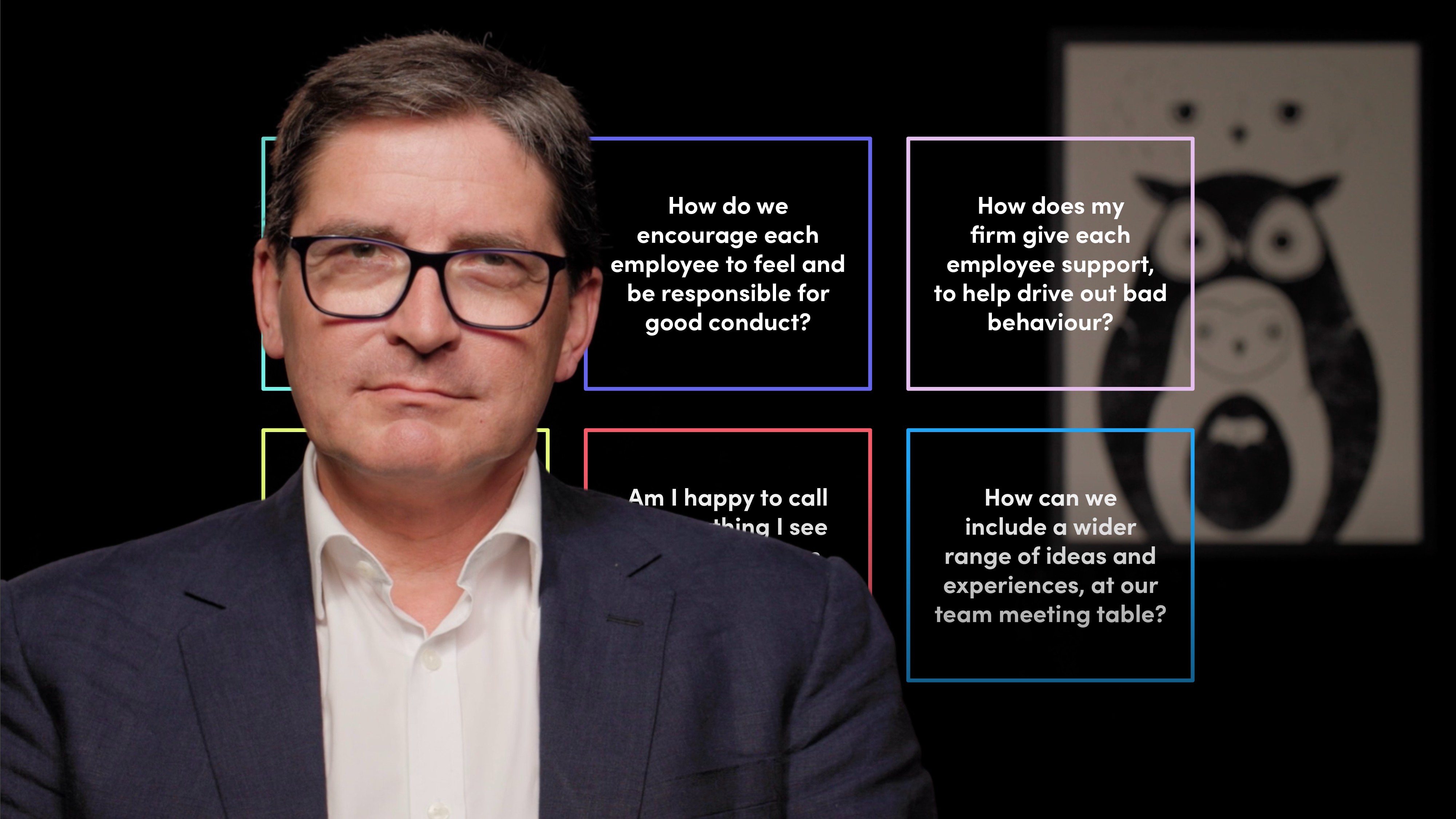
Five Indicators of Good Culture

Roger Miles
25 years: Behavoural science & conduct
How do we achieve good culture and conduct? Is there an easily digestible roadmap for companies to follow? Luckily, Roger Miles is here to show the way. In this video, he explores the regulator’s six technical conduct questions and the five indicators of good culture.
How do we achieve good culture and conduct? Is there an easily digestible roadmap for companies to follow? Luckily, Roger Miles is here to show the way. In this video, he explores the regulator’s six technical conduct questions and the five indicators of good culture.

Five Indicators of Good Culture
14 mins 5 secs
Key learning objectives:
Outline the six technical conduct questions
Identify the five indicators of good culture
Overview:
After COVID-19, regulators are reassessing how we approach conduct and culture. From the regulator’s technical questions we can derive a more simple, plain language version that examines how to check for a company's conduct. We can also use five easy indicators for good culture: psychological safety, leadership character, cognitive reach, social licence and reflexivity.
What are the six conduct questions?
1. What should I do to check that no one is behaving badly in our business?
2. How do we encourage each employee to feel and be responsible for good conduct?
3. How does my firm give each employee support to help drive out bad behaviour?
4. How do our senior managers oversee conduct and consider consequences of their decisions?
5. Am I happy to call out anything I see that undermines our efforts for good conduct?
6. How can we include a wider range of ideas and experiences at our team meeting table?
What are the five indicators of good culture?
1. Psychological safety
How safe do people feel to challenge? For example to question poor systems, bossy command-and-control attitudes, or when we see an event of misconduct, to ask why those people are behaving in an entitled way.
2. Leadership character
How quickly do our business senior leaders step up to acknowledge and fix problems? How quickly do we take on board lessons learned? Do leaders actively avoid bad behaviours of their own such as blame-shifting or ‘turf wars’ or demanding unconditional loyalty even when they themselves behave badly?
3. Cognitive reach
How good is our firm at welcoming new ideas and ways of problem solving to the table? In team meetings do we welcome challenges, especially when this comes from people with a range of different backgrounds, who we wouldn't necessarily agree with?
4. Social licence
How far your stakeholders are letting you get on with your work, without feeling they need to criticise it. Are you in danger of taking for granted the goodwill that you rely on, from staff, customers, clients, capital providers, regulators and the general public? How complacent are we about all these stakeholders being genuinely happy about what we are doing?
5. Reflexivity
How good are we at actively keeping an open mind? Are we as a firm collectively comfortable with other people questioning our assumptions? When situations change, such as new technologies and markets opening up, how long does it take our firm to work out new ways to do things?

Roger Miles
There are no available Videos from "Roger Miles"

